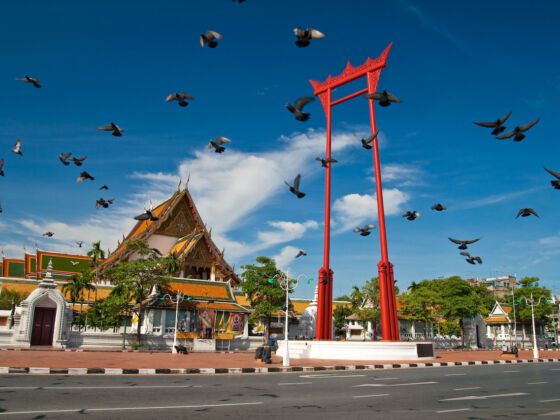Last week, thousands of anti-government demonstrators besieged the offices of Thailand’s prime minister, demanding his resignation.
A state of emergency was imposed in the capital after anti-government demonstrators fought with government supporters, leaving one dead and dozens injured.
Images of protesters pushing down gates, cowering among clouds of tear gas and clashing with opposing groups have prompted calls from concerned friends and family abroad who ask:
“What’s happening?” What’s going on?”
Here are 10 key points that explain the latest political struggle in Thailand:
